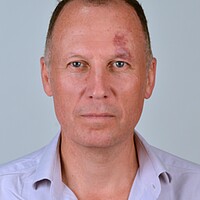In one Athens suburb, austerity rips a hole in safety net
Loading...
| Athens
French charity Doctors of the World provides emergency relief in war zones and natural disaster areas across Asia and Africa. But now the group finds itself working closer to home – in Greece.
After five years of austerity and recession in Greece, doctors at the charity say they are seeing a dramatic increase in poor health and malnutrition among the public. The deterioration of the country's social safety net amid austerity-driven cuts is not just driving the political change seen in anti-austerity party Syriza's political victory earlier this week. It's having a very real physical impact as well.
“Before the crisis began, I would never have thought this would happen to Greece,” says George Tomaras, a pediatrician who works at a clinic in Perama, a gritty port on the outskirts of Athens.
“But I think it’s only the beginning. I don’t see any change coming, just more people losing their jobs every day.”
Tearing the net
Five years ago, with Greece crippled by debt and on the verge of bankruptcy, the International Monetary Fund, European Union, and European Central Bank stepped in to loan the country 240 billion euros ($270 billion) in an emergency bailout.
The condition for that loan was that Greece should embark on a stringent program of economic reforms and budget cuts to the public sector.
One of the hardest hit areas was the health service. The aim was to cut overspending and stamp out corruption in a country where many doctors demand under-the-table payments before they will see a patient or perform an operation.
According to figures released by the OECD, health spending per capita in Greece dropped by 25 percent between 2009 and 2012, and it has not improved since then.
At the same time medical care was being cut, so too was Greeks' ability to pay for it. Under Greece’s health system, people must pay into a state-run insurance scheme to qualify for medical care. If they lose their jobs, those payments dry up and they can no longer tap into the system. A third of the Greek population no longer has health insurance, officials say.
And clinics, like the seven Doctors of the World operates, say that public health is suffering as a result.
Hunger and sickness
The Perama clinic provides free medicines and health check-ups to people who can no longer afford to pay for them. The number of people turning up at the clinic, located on a dusty street corner overlooking the sea, increases every month.
The clinic not only provides free medicines and check-ups. In a sign of how tough life has become for millions of Greeks since the economic implosion of their country, it also gives out boxes full of free food: pasta, rice, olive oil, and milk.
That is a response to a growing malnutrition problem, especially among babies and young children. “I saw a 15 month-old baby girl recently who had lost 1.5 kg (3.3 lbs). Her mother said she was only feeding her milk – she couldn’t afford anything else,” says Dr. Tomaras, who has seen his own monthly salary cut from 1,300 euros ($1,470) to 1,000 euros ($1,130) as a result of spending cuts.
The clinic also provides vaccinations for children. But Doctors of the World and other charities fear that tens of thousands of Greek children are no longer being vaccinated for deadly diseases such as polio, measles, tuberculosis, meningitis, and hepatitis, creating a ticking time bomb for public health.
“Thousands of children are not being vaccinated. Before the crisis there were centers all over Greece giving vaccines for free. But they have all closed. We are starting to see polio and measles come back,” says Liana Maili, the director of the charity in Greece.
“The health system here does not exist anymore. There are hospitals with no medicines or surgical instruments and clinics with no doctors.”
'They need to find a deal'
Perama was in a bad way even before Greece’s recession struck in 2009. An outlying district of the port of Piraeus, it once prospered on the back of building and repairing ships.
But the shipping industry has contracted drastically because of bad management and competition from countries where costs are lower. Unemployment in Perama is now more than 60 percent.
Greece’s radical new government, led by Prime Minister Alexis Tsipras, insists that the only way to get the country back onto its feet is for its creditors to grant a write-down of its staggering debt and a softening of austerity policies.
EU leaders voiced this week their strenuous objections to cutting Athens any more slack, but analysts believe that if both sides are prepared to compromise on their principles, an accord can be reached – not just for the sake of struggling Greeks, but for the entire European integration project.
“They need to find a deal whereby both sides are able to save face,” says Harry Theoharis, the former head of Greece’s national taxation agency, who was elected as an MP with the centrist To Potami (The River) party this week. “Everybody wants to put the crisis behind them. And our European partners want to stop talking about Greece.”





